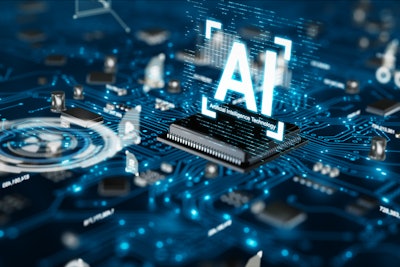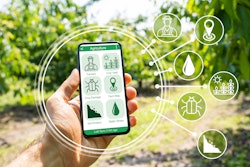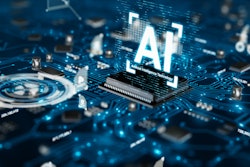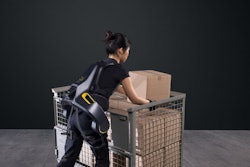
Food manufacturers and logistics providers are serving up a fresh approach to frontline workforce training, courtesy of artificial intelligence. As the industry grapples with labor shortages and rapidly evolving supply chain demands, cutting-edge artificial intelligence (AI) is emerging as a powerful ingredient to upskill workers and enhance operational efficiencies.
AI-powered training platforms revolutionize how frontline food employees acquire new skills and knowledge. Data-driven workforce solutions tap into the wealth of operational data across the food supply chain to personalize learning experiences, provide real-time coaching, and establish a continuous cycle of workforce advancement.
A growing menu of workforce challenges
The food industry's workforce training needs are becoming increasingly complex. As new automation technologies, supply chain processes, and food safety protocols are introduced, frontline workers require ongoing reskilling. However, traditional training approaches such as classroom sessions and sharing static standard operating procedures are inflexible and many struggle to keep up.
Simultaneously, companies face steep hiring and retention challenges. Deloitte research predicts that over 2.1 million manufacturing jobs will remain unfilled in the United States by 2030. Full in-person jobs and those with typically lower wages have been hit the hardest, and constant workforce turnover hampers operations and drains resources spent on redundant retraining.
AI offers an appetizing solution, enabling food manufacturers to future-proof their workforce development. Connected worker platforms built on AI with capabilities for machine learning and natural language processing unleash powerful new training modalities. The result is an enhanced ability to onboard new hires rapidly, upskill existing staff seamlessly, and cultivate an empowered frontline team poised for long-term success.
From data, AI generates personalized training
The food industry's manufacturing facilities, farms, distribution centers, and transportation networks are highly data-prolific environments. Food production processes, Internet of Things (IoT) sensor telemetry, equipment operations, food safety records, shop floor data collection, connected worker data and more generate a wealth of valuable operational data.
Ideally, an AI training platform can ingest and analyze these diverse data streams to extract vital insights about workforce skills gaps, training needs, and optimal learning pathways. Using machine learning, the AI can automatically map out individualized skills development curricula for each frontline employee based on their role, prior expertise, learning patterns, and performance data.
Instead of generic, one-size-fits-all training content, workers receive dynamically tailored coaching customized specifically for their needs. Bite-sized learning modules target known competency gaps, while practice tests and simulations reinforce weaker areas before progressing to more advanced content. New onboarding content prioritizes essential knowledge for getting hires productive quickly.
This hyper-personalized approach driven by operational data dramatically accelerates employee time-to-capability across roles such as food manufacturing technicians, packagers, and logistics workers. New policy updates, food safety protocols, compliance requirements, and other critical learnings can be rapidly disseminated at scale through the AI system.
AI -- the interactive frontline tutor
Food workers don't just receive static training assignments from generative AI-based skills coaching platforms; the AI acts as a persistent virtual coach and tutor. Using conversational AI models, platforms can engage in back-and-forth interactive dialogues with employees to provide dynamic guidance tailored to each situation.
An employee working on a food processing line could ask the AI for step-by-step walkthrough instructions on a particular machine or protocol, with the AI-powered digital coach's responses adapting based on their specific role, experience level, prior training, and performance. The AI can instantly pull relevant documentation, videos, simulations, or subject matter expert advice to create an optimized, on-the-job learning experience.
Beyond supporting individual workers, the AI tutor can also guide frontline managers and trainers in overseeing daily operations. It can walk a manager through leading meetings, analyze process metrics, and ensure frontline teams stay on track with standard operating procedures.
Building a culture of continuous workforce learning
Rather than traditional training initiatives that have defined start and end points, AI skills coaching establishes an ongoing loop of continuous workforce learning and optimization for food manufacturers.
After rapidly baselining each worker's existing skills, a connected worker platform curates an initial learning path focused on priority development areas. It then continuously monitors data inputs such as employee performance, operational changes, compliance updates, and new technology deployments to generate new AI-guided training modules. Outdated skills and knowledge areas are automatically refreshed and reinforced.
Importantly, AI skills coaching extends beyond traditional technical skills. By evaluating behavioral data, AI fosters training paths for enhancing essential human skills, including problem-solving, decision-making, teamwork, and communication. This holistic approach produces a well-rounded, adaptable frontline workforce capable of tackling escalating industry complexities.
Food manufacturers who make strategic investments in data-driven, AI-powered workforce training, gain the capacity to rapidly build the frontline workforce of the future. As technological and operational complexity increases, these manufacturing leaders will maintain a continuous pipeline of highly knowledgeable, highly skilled workers prepared for every challenge - from farm to fork to delivery.


















